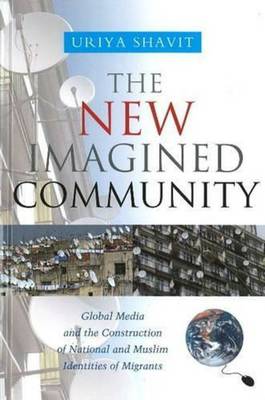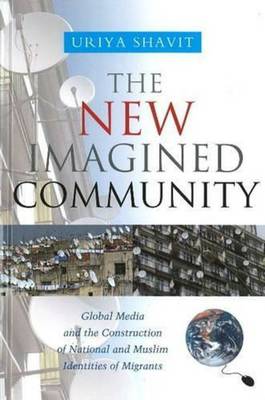
- Afhalen na 1 uur in een winkel met voorraad
- Gratis thuislevering in België vanaf € 30
- Ruim aanbod met 7 miljoen producten
- Afhalen na 1 uur in een winkel met voorraad
- Gratis thuislevering in België vanaf € 30
- Ruim aanbod met 7 miljoen producten
Zoeken
New Imagined Community
Global Media and the Construction of National and Muslim Identities of Migrants
Uriya Shavit
Hardcover | Engels
€ 132,95
+ 265 punten
Omschrijving
Advanced media technologies -- satellite technology and the Internet -- have transformed immigrants' relations with their departure and arrival societies. Part I -- "Imagining Nation States from Afar" -- extends Benedict Anderson's model of the nation as an imagined community; discussion focuses on how immigrants are enabled to imagine their native national communities from afar, almost as if they never left their homelands. As a result, new typologies of migrants are created, such as the passive trans-national. A comprehensive analytic framework for the role of advanced media technologies in fostering relations between immigrants and their national communities of origin is presented. In addition the author explores, through biographical research with immigrants of diverse nationalities, the spectrum of responses imagination of national communities from afar invokes among different types of immigrants (the sojourner, the member of an ethnic community and the long-distance national). Part II -- "Imagining the Muslim Nation State from Afar" -- explores how Muslim-Arab religious scholars, envisioning the rise of a global Muslim nation, have developed over the past thirty years a theory that tasks Muslims living in the West with specific duties within the framework of their anticipated global Muslim nation. These Muslim-Arab religious scholars and other advocates were quick to discover the merits of advanced media technologies in enhancing their vision of global Islam. The author's biographical field research was conducted with devout Muslim-Arabs in five mosques in Frankfurt am Main, Germany. His research illustrates how the proliferation of this global Muslim media plays an increasingly important -- albeit yet still limited -- role in shaping the identity of Muslim immigrants. These specific challenges to the foundations of the modern liberal nation state are ripe for discussion given the world-wide concern over immigration and its consequences.
Specificaties
Betrokkenen
- Auteur(s):
- Uitgeverij:
Inhoud
- Aantal bladzijden:
- 209
- Taal:
- Engels
Eigenschappen
- Productcode (EAN):
- 9781845193287
- Verschijningsdatum:
- 22/09/2009
- Uitvoering:
- Hardcover
- Formaat:
- Genaaid
- Afmetingen:
- 159 mm x 233 mm
- Gewicht:
- 458 g

Alleen bij Standaard Boekhandel
+ 265 punten op je klantenkaart van Standaard Boekhandel
Beoordelingen
We publiceren alleen reviews die voldoen aan de voorwaarden voor reviews. Bekijk onze voorwaarden voor reviews.











